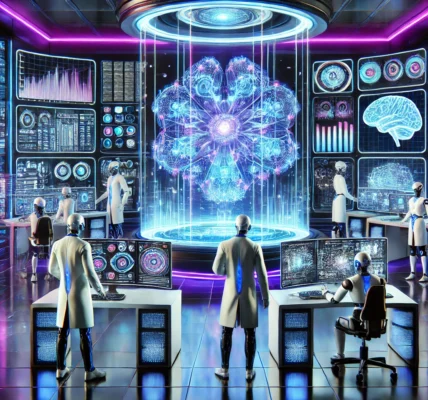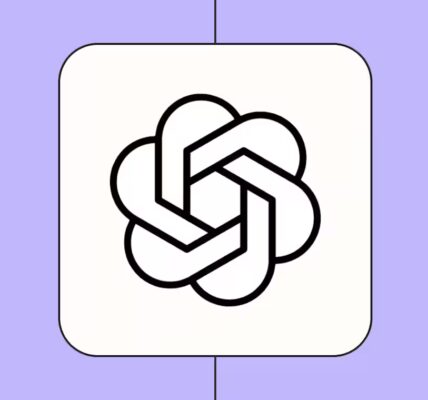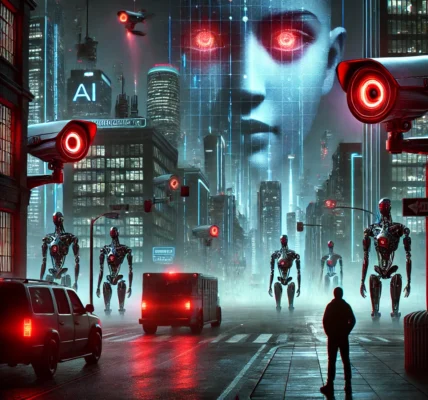The artificial intelligence landscape is constantly evolving, with new contenders emerging regularly. One of the latest and most intriguing entrants is Claude, a next-generation AI chatbot developed by Anthropic. Promising enhanced safety and performance, Claude has quickly garnered attention, sparking discussions about its potential to reshape how we interact with AI. But how does Claude truly stack up against the established giants in the field? Let’s delve into the details and decode what makes this new AI tick.
Claude: The Next Big AI?
Claude represents a significant step forward in AI chatbot technology. Developed with a focus on “constitutional AI,” it aims to be less prone to generating harmful or biased content. This approach emphasizes aligning AI behavior with human values, making interactions safer and more reliable. The underlying technology is based on extensive research into large language models, enabling Claude to understand and respond to complex prompts with nuanced and informative answers.
This focus on safety and ethical considerations makes Claude stand out in a crowded field. As concerns about AI bias and misuse continue to grow, a chatbot designed with these principles at its core holds significant appeal. Beyond its ethical framework, Claude also boasts impressive capabilities in natural language processing, understanding context, and generating coherent and contextually relevant text.
The potential applications for Claude are vast, ranging from customer service and content creation to education and research. Its ability to understand and respond to complex queries makes it a versatile tool for various industries. Early adopters have reported positive experiences, praising Claude’s helpfulness and its ability to engage in meaningful conversations.
Ultimately, whether Claude becomes “the next big AI” remains to be seen. However, its innovative approach to safety and its impressive performance suggest it has the potential to become a major player in the AI landscape. Its continued development and adoption will undoubtedly shape the future of how we interact with and utilize AI.
Anthropic’s Bold New Chatbot
Anthropic, the company behind Claude, is a relatively new player in the AI field, but it’s composed of a team of experienced researchers and engineers, many of whom have contributed to leading AI projects in the past. Their focus on building safe and beneficial AI is a core principle driving the development of Claude. This commitment to ethical AI development is gaining increasing recognition and setting Anthropic apart in a competitive market.
The company’s “constitutional AI” approach is a novel attempt to address the inherent challenges of aligning AI behavior with human values. By incorporating ethical guidelines directly into the training process, Anthropic aims to create AI systems that are inherently less likely to produce harmful or undesirable outputs. This proactive approach to safety is a significant differentiator for Claude.
Anthropic has also emphasized transparency in its development process, sharing research and insights with the wider AI community. This open approach fosters collaboration and contributes to the ongoing discussion about responsible AI development. By engaging with the broader community, Anthropic aims to improve its technology and contribute to the development of industry best practices.
With Claude, Anthropic is making a bold statement about the future of AI. They are not simply building another chatbot; they are attempting to redefine how AI is developed and deployed, prioritizing safety and ethical considerations above all else. Their commitment to this vision will be crucial to Claude’s success and the broader impact of their work in the AI field.
Capabilities and Limitations
Claude exhibits impressive capabilities in natural language understanding and generation. It can engage in complex conversations, answer questions accurately, and even generate creative content like poems and code. Its ability to understand context and nuances in language allows for more natural and engaging interactions compared to some earlier chatbot models.
However, like all current AI models, Claude has limitations. It can sometimes generate incorrect or nonsensical responses, particularly when dealing with ambiguous or complex queries. While its “constitutional AI” framework mitigates some risks, it doesn’t eliminate them entirely. Ongoing research and development are crucial to address these limitations and improve its overall performance.
Another limitation is Claude’s reliance on the data it was trained on. Like other large language models, it can be susceptible to biases present in the training data. While Anthropic’s approach aims to minimize these biases, they can still manifest in subtle ways. Continuous monitoring and refinement of the training data are essential to mitigate this issue.
Finally, access to Claude is currently limited. While Anthropic is gradually expanding access, it’s not as widely available as some other AI chatbots. This limited access restricts wider testing and feedback, which are crucial for further development and refinement. Increased availability will be key to realizing Claude’s full potential.
Claude vs. the Competition
The AI chatbot market is becoming increasingly competitive, with established players like ChatGPT and Bard vying for dominance. Claude enters this landscape with a distinct focus on safety and ethical AI, differentiating it from some of its competitors. While other chatbots prioritize performance and functionality, Claude emphasizes responsible development and deployment.
Compared to ChatGPT, Claude demonstrates a greater emphasis on avoiding harmful or biased outputs. While both models exhibit strong language processing capabilities, Claude’s “constitutional AI” framework aims to provide a safer and more reliable user experience. This focus on safety could be a significant advantage in certain applications.
Compared to Bard, Claude offers a different approach to handling complex queries. While Bard excels at information retrieval and summarization, Claude focuses on engaging in more nuanced and conversational interactions. This difference in approach caters to distinct user needs and preferences.
Ultimately, the “best” chatbot depends on the specific application and user requirements. Claude’s focus on safety and ethical considerations makes it a compelling alternative to existing solutions, particularly for applications where trust and reliability are paramount. As the AI landscape continues to evolve, competition among these chatbots will drive further innovation and improvement.
Claude represents a promising new direction in AI chatbot technology. Its focus on safety, ethical considerations, and robust language processing capabilities sets it apart in a crowded field. While it still has limitations, its innovative approach and the commitment of the team at Anthropic suggest a bright future. As Claude becomes more widely available and continues to evolve, it will be fascinating to see how it reshapes the landscape of AI interaction and what new possibilities it unlocks.






